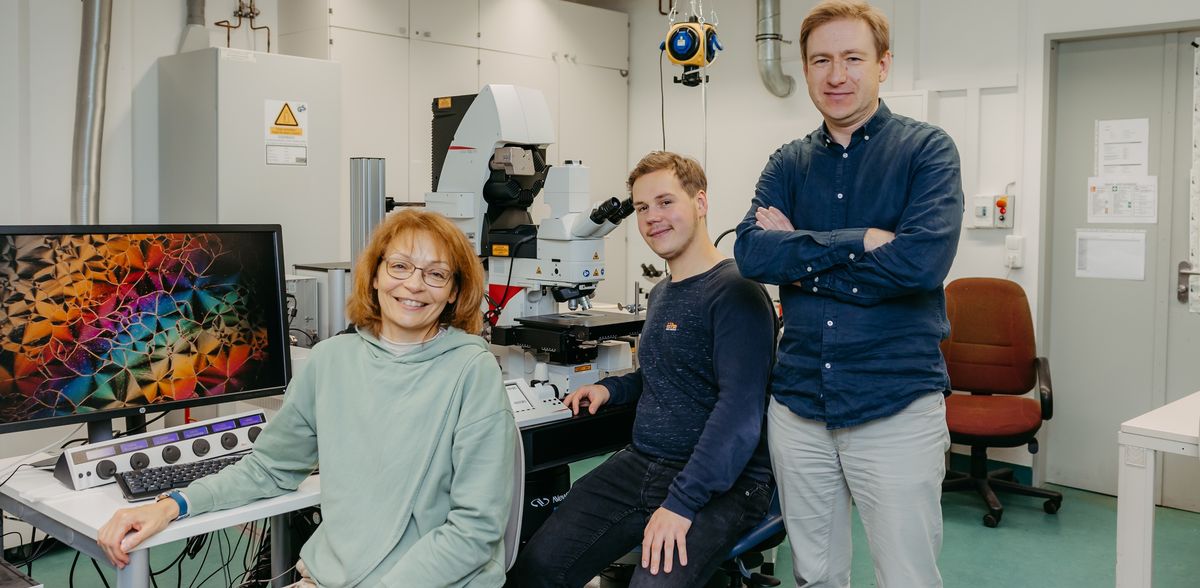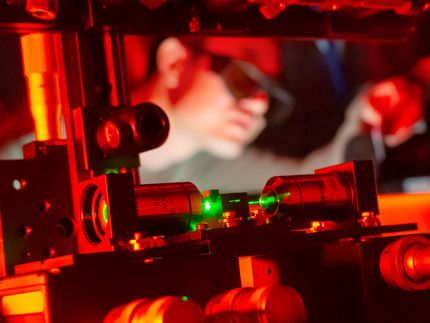Researchers at the University of Magdeburg discover new class of materials
Physicists develop multiferroic liquid with spontaneous magnetic and electrical order
Advertisement
Physicists at Otto von Guericke University Magdeburg have developed a new class of materials: so-called multiferroic liquids. These materials combine ferromagnetic and ferroelectric properties in a liquid state for the first time - a behavior that was previously only known in solid crystals.
Multiferroic materials have two special properties: they are ferromagnetic, i.e. they can be magnetized and retain their magnetization even without an external magnetic field. And they are ferroelectric, which means they can store electrical charge, similar to a tiny, permanently polarized capacitor.
While this double effect in solids is due to ordered crystal structures, it is hardly feasible in liquids due to their disordered molecular structure.
The team led by Dr. Hajnalka Nádasi and Prof. Alexey Eremin from the Department of Nonlinear Phenomena has produced hybrid materials consisting of ferroelectric nematic liquid crystals and ferrimagnetic nanoplatelets made of barium hexaferrite as part of a project funded by the German Research Foundation (DFG). By precisely coordinating the composition, a stable liquid was created in which electrical and magnetic order occur simultaneously at room temperature.
"It was long considered almost impossible for stable magnetic and electrical states to form simultaneously in a liquid system," says Dr. Nádasi.
The novel liquids react particularly sensitively to external magnetic and electric fields. This opens up possibilities for sensors, actuators - i.e. materials that react to stimuli and move - as well as for electro- and magneto-optical applications.
"Because liquid crystal-based systems require very little energy, they could contribute to more energy-efficient materials and components in the future," Dr. Nádasi continues.
The Jožef Stefan Institute in Ljubljana (Slovenia), the Technical University of Braunschweig and Merck Electronics KGaA in Darmstadt were involved in the project. The research is part of the joint initiative Master and Bachelor in Physics of Soft Materials by Merck and the University of Magdeburg, which offers students insights into current materials research.
Note: This article has been translated using a computer system without human intervention. LUMITOS offers these automatic translations to present a wider range of current news. Since this article has been translated with automatic translation, it is possible that it contains errors in vocabulary, syntax or grammar. The original article in German can be found here.
Original publication
Hajnalka Nádasi, Peter Medle Rupnik, Melvin Küster, Alexander Jarosik, Rachel Tuffin, Matthias Bremer, Melanie Klasen‐Memmer, Darja Lisjak, Nerea Sebastián, Alenka Mertelj, Frank Ludwig, Alexey Eremin; "Room‐Temperature Multiferroic Liquids: Ferroelectric and Ferromagnetic Order in a Hybrid Nanoparticle–Liquid Crystal System"; Advanced Materials, Volume 37, 2025-7-26































































